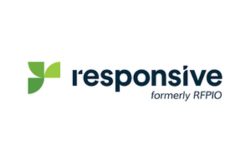The Salford Royal NHS Foundation Trust – one of 16 sites in the UK with the status as a Global Digital Exemplar – has begun a partnership with Code Computerlove to drive forward its ambition to put Human Centred Design at the heart of its digital solutions.
The partnership is being spearheaded by Salford Royal’s Director of Digital Rachel Dunscombe, who is also leading a new, NHS Digital Academy, established to develop the talents of hundreds of the NHS’s digital leaders.
She explained, “I believe the system is pivoting to a new model of wellness, health and care that’s unconstrained using digital, where complexities are removed with the right platforms and skills.
“Bringing in support from Code, we’ve embarked on a programme of digital innovation, implementing the digital skills and knowledge to drive forward significant advances that will not only deliver improvements for patients accessing NHS services but for health professionals working within it, with smarter, better designed systems to simplify day to day processes. “
“Putting Human Centred Design at the heart our approach is fundamental to creating the right solutions that will create most impact and efficiencies.”
Tom Bradley, design director at Code Computerlove who recently presented Code’s Human Centred Design approach to the Trust’s staff, said: “Human Centred Design, or design thinking, is an approach to problem solving. At Code we couple this with product thinking and modern engineering to help solve business and user problems. It’s an approach that advocates empathy and learning, and working in collaborative teams.
“There is a well-established process and set of methods that is now commonly known as design thinking which helps designers and teams really focus on the user. It’s a design process that starts with the people we are designing for and ends with a tailor-made solution that meets their needs.”
“The process starts out with in-depth design research. This research helps the team gain valuable empathy for the user and generate ideas that are tailored to the insights and problems we have observed. Often these kinds of research exercises uncover problems and issues we would never have been told about by a product team in the normal course of a project. Our design activities put the designer and wider team in direct content with the users and remove layers of red tape, un-necessary business needs or misguided assumptions.”
Code has begun its work with The Salford Royal NHS Foundation Trust with a 100-day sprint focussing on Salford Royal’s admissions process. The aim is to improve the quality of patient information and speed/experience of entering this information at the admissions stage. This in turn will provide a better standard of care throughout the patient journey.
Using the Trust’s existing Electronic Patient Record system, that has the functionality available within it to make the admissions form more user friendly and effective, Code is working with the EPR team to increase the visual quality of the form and overall user experience to increase the quality and consistency of information collected at the point of admission.
Having spent a number of days in the Trust’s hospitals to observe and shadow doctors to understand critical moments in patient admittance to the hospital, Code is now creating prototypes for testing.
Rachel added: “We recognised that Code is a team that works differently to the more typical digital agency, and that the maturity of their approach to digital innovation was exactly what we needed in a partner. They are working alongside us to bring the knowledge and skills to our teams as a whole, not taking a “we’ll tell you what to do” methodology like many agencies presented to us. It’s a partnership in the true sense of the word, and their approach will enable us to really create the changes that are right for citizens and staff alike.”









